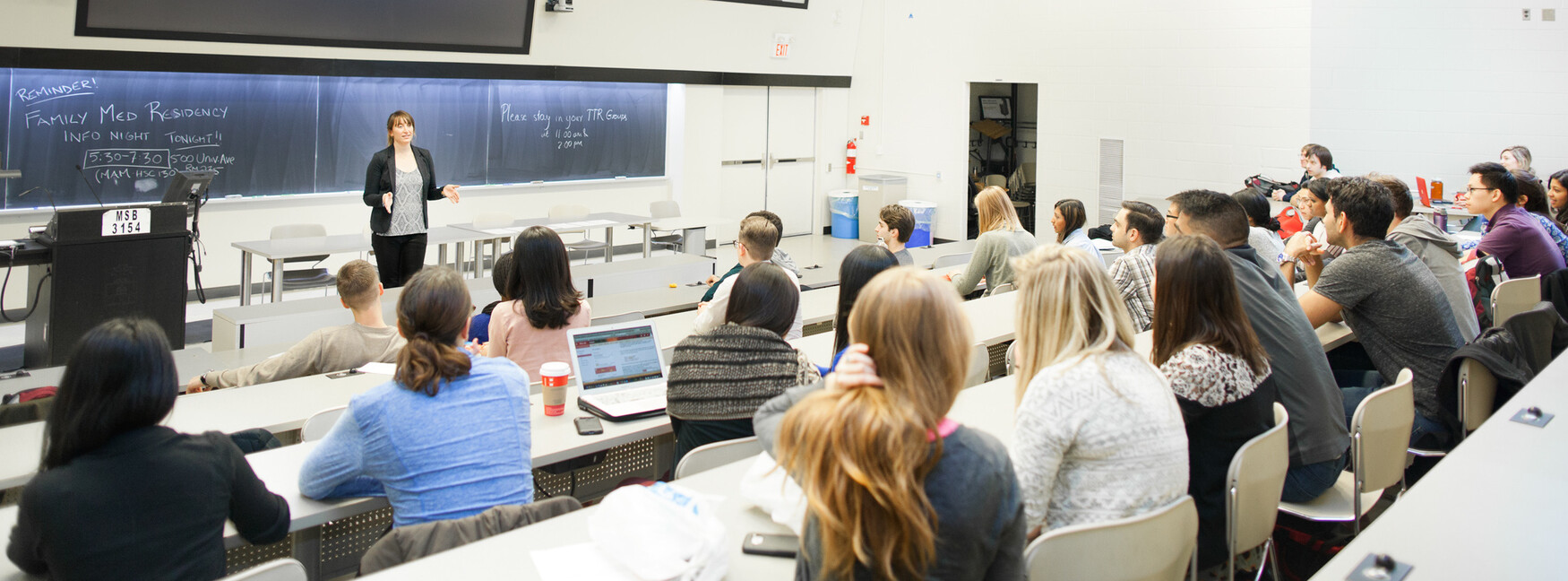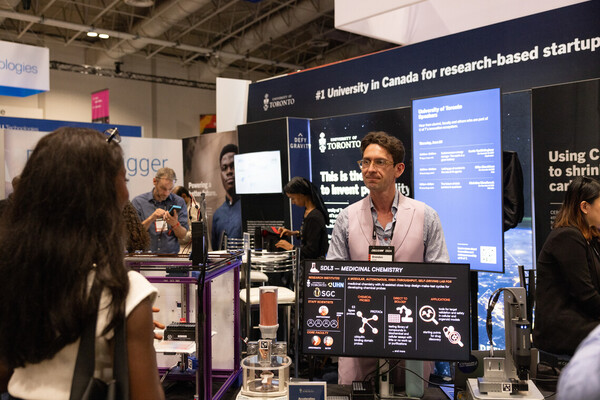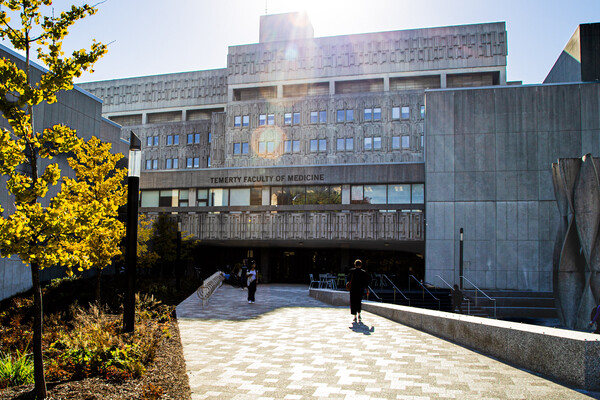Main Second Level Navigation
Breadcrumbs
- Home
- News & Events
- Recent News
- Accreditation Process Affirms the Quality of Medical Education in Temerty Medicine
Accreditation Process Affirms the Quality of Medical Education in Temerty Medicine
MD Program and 79 residency programs undergo simultaneous accreditation review in the midst COVID-19

Temerty Medicine’s MD Program, 79 of its postgraduate training programs as well as its Postgraduate Medical Education (PGME) Office underwent accreditation reviews in 2020. This included site visits held virtually due to the impact of COVID-19. This major undertaking was made possible thanks to the commitment and involvement of over 3,500 education leaders, faculty, health care professionals, administrative staff and learners. The virtual highwire act proved successful at both the undergraduate and postgraduate levels with the MD Program and 58 postgraduate training programs accredited for another full eight-year term. The PGME Office and the remaining 21 residency programs have been accredited with a follow-up report or site visit required in three years.
Accreditation is one of the ways that Temerty Medicine provides assurance to its stakeholders, including its learners and the public, that its medical education programs have met national education quality standards. “As a part of a continuous quality improvement process, accreditation helps us ensure that our medical students, residents and fellows are sufficiently prepared for their next stage of training and practice,” says Patricia Houston, Vice Dean, Medical Education, as well as the current Acting Dean and Interim Associate Dean, PGME.
The MD Program was accredited by the Committee on Accreditation of Canadian Medical Schools (CACMS) for the maximum eight-year term, having satisfactorily meet 90 of 96 elements and found to be in compliance with 11 of 12 standards. A follow-up status report will be sent to the CACMS in August 2023 to ensure that the program is taking steps to address areas where further attention is needed.
PGME accreditation was also successful, with 58 postgraduate training programs accredited by the Canadian Residency Accreditation Consortium (CanRAC) for the maximum eight-year term with no follow up required. The PGME Office and 14 postgraduate training programs were accredited with a follow-report required in November 2023, and seven postgraduate training programs were accredited with a follow-up site visit required in November 2023.
In the course of their work, the PGME accreditation reviewers identified four leading practices or innovations that demonstrate efforts above and beyond accreditation requirement expectations that are novel and should be broadly shared. These four practices include the equity, diversity and inclusion (EDI) toolkit used as part of the resident selection process to address issues of unconscious bias, the Global Health Education Initiative, the scholarly approach used to support the development, implementation and evaluation of educational initiatives, and the facilitation of data-informed decision making by the PGME Office.
Although the results are impressive, they do not tell the full accreditation story.
The accreditation process begins with and is grounded in data collection and self-study by the MD Program and, for PGME, by each of the residency programs as well as the PGME Office.
“Data collection began more than a year prior to the visit by the CACMS team,” explained Christopher Jones, Accreditation Project Manager for the MD Program. Jones added that “compiling the necessary information required significant collaboration among MD leadership, faculty, staff, and clinical partners. As a result of those efforts, the self-study in fall 2019 was thorough and thoughtful, with active engagement from individuals within and outside of the MD Program.”
Laura Leigh Murgaski, Program Manager for PGME Accreditation & Education Quality Systems described a similar process for PGME, with data collection by Program Directors and Program Administrators beginning 18 months prior to the accreditation visit. Then there was the challenge of scheduling the visits. “With over 90 schedules to prepare and thousands of stakeholders to be met with, the coordination of events for the PGME visit required the diligence of hundreds of administrators from across PGME, our programs, and our hospital partners. We are extremely grateful for the hard work and support of so many.”
The learner voice, provided through reports such as the Independent Student Analysis (ISA), participation in self-study exercises and at the site visits, is foundational to the accreditation process. “The ISA leadership team, which was broadly representative of the student body, conducted a massively successful survey, with a response rate over 90 per cent. The rich survey data allowed the team to make concrete recommendations to improve multiple aspects of the program – from curriculum to student services,” said Jones. Thanks to input from learners, action was taken to make improvements prior to the site visits, such as the introduction of EDI and trauma-informed pathways for learners to discuss, disclose or report mistreatment, a redesign of the MD Program student mistreatment webpage to provide learners with a more user-friendly interface, and the appointment of a Director, Learner Experience to help ensure institutional oversight and accountability.
“The accreditation process is a huge undertaking that takes the participation of many faculty, staff, and learners. I am incredibly thankful for their assistance and commitment to excellence. I hope they take pride in our outstanding outcomes,” said Houston. She emphasized how the provision of clear direction and ongoing support from the MD and PGME accreditation teams was integral to this success.
Like most things over the past 18 months, the 2020 accreditation process was impacted by COVID-19, requiring a pivot from in-person to virtual site visits. The MD visit took place November 2 to 6, 2020 with a follow-up visit on December 7, 2020. The PGME visit took place November 22 to December 4, 2020. The MD Program site visit included 15 sessions involving approximately 150 participants. For the PGME visit, there were 115 different schedules, ranging from half a day to three days in length.
Houston is confident that the Temerty Medicine’s medical education programs will continue to make changes to ensure that medical students, residents and fellows are provided with the best possible learning experiences. “Thanks to the collective commitment of our faculty, staff and learners, accreditation has been an outstanding success. The follow-up work that needs to be done will focus on areas in which we have already made great progress, such as the development of harmonized and learner-centric professionalism and mistreatment guidelines and supports, the introduction of a Learner Assessment of Clinical Teaching form, and renewed career advising and wellness supports for our learners. And the work that still needs to be done aligns very well with Temerty Medicine’s Strategic Plan and the vision for the future of Temerty Medicine.”
Dean's Report 2021


